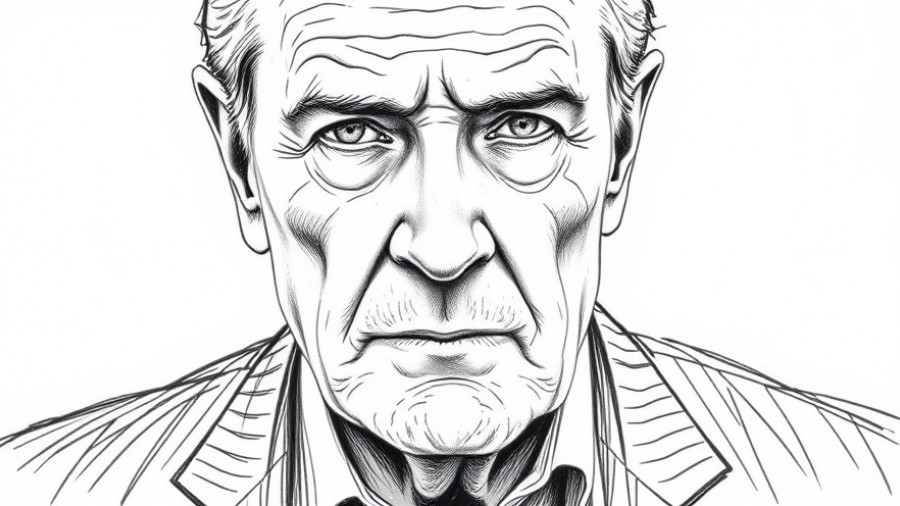
Rethinking Reality Through Heidegger's Lens
In today’s world, where scientific facts sometimes clash with personal experiences, philosopher Martin Heidegger’s ideas offer a refreshing perspective. His belief that reality isn’t entirely rational invites us to reflect on the gap between scientific understanding and our lived experiences.
Tim Miechels, a contemporary philosopher, brings Heidegger’s insights into focus as he navigates the complexity of reconciling scientific knowledge with everyday life. Highlighting the paradox of scientific inquiry, Miechels references the example of a seemingly ordinary desk that, under the lens of physics, breaks down into invisible particles. This juxtaposition of the tangible and the abstract captures the essence of Heidegger’s struggle to unify scientific rationality with the rich texture of human experience.
Understanding the Dual Nature of Reality
According to Miechels, the disconnect between the scientific view of objects and our everyday interpretation can lead to a profound misunderstanding of what it means to exist. For example, while physics teaches us that our feelings and experiences are merely electrical impulses in the brain, how can we reconcile this with the essence of love or happiness? These emotional states might be unquantifiable but are undeniably real in our interactions.
Heidegger’s work encourages us to consider that scientific perceptions can co-exist with personal realities, thereby avoiding the rigid boundaries that sometimes frame our understanding of existence. His insistence on phenomenology—the study of structures of experience and consciousness—serves as a reminder that feelings, thoughts, and beliefs are valid in their own right, separate from empirical validation.
The Role of Phenomenology in Science
Phenomenology, as founded by Edmund Husserl and expanded by Heidegger, emphasizes returning to lived experience as a primary source of knowledge. Miechels echoes this sentiment in his promotion of linking phenomenology to contemporary scientific inquiry. This integration opens the door for a more holistic understanding of human interaction with nature and technology.
Heidegger, in his magnum opus Being and Time, suggests that genuine understanding requires us to move beyond simplistic interpretations of being and embrace a more profound relationship with existence. Understanding being as a relational, rather than fixed, aspect of life can shape how we approach various fields, including psychology, arts, and science. This philosophy invites us to cultivate a sense of wonder—valuing experience over mere intellectual comprehension.
The Implications for Modern Science
In light of the rising dominance of technology and scientific rationality, Heidegger’s critique points towards an essential truth: our conventional measures of success in science and technology might overlook the potential for deeper, richer experiences. In his critique of the scientific worldview, he questions whether reducing entities to mere resources deprives them of their true essence.
This brings us to the heart of the modern philosophical dilemma: as we become ever more entangled in technology’s influence, do we risk losing our human essence? The danger, Heidegger posits, lies in surrendering our quest for meaning and relevance to technological constructs, leaving behind the underlying essence and significance of existence.
Challenging Conventional Wisdom
As Miechels emphasizes, the essence of reality and the nature of scientific exploration are not mutually exclusive. They must be perceived as intertwined spheres that inform and enhance our understanding of one another. As we grapple with questions of existence, we should remain open to integrative approaches that bridge the scientific and the experiential realms.
To truly embrace an authentic existence, acknowledging both objective facts and subjective experiences allows for the cultivation of a more comprehensive perspective on our lives and the world around us.
Conclusion: Embracing Philosophical Inquiry
Incorporating Heidegger’s philosophies into broader dialogues about science and existence gives us the tools to navigate a world rife with contradictions. As we redefine our understanding of consciousness and experience, let us not dismiss the valuable lessons of philosophy in a rapidly advancing technological world.
Exploring these philosophical intersections can foster deeper connections across disciplines—leading us towards a more profound understanding of what it means to live fully and meaningfully.
 Add Row
Add Row  Add
Add 


Write A Comment